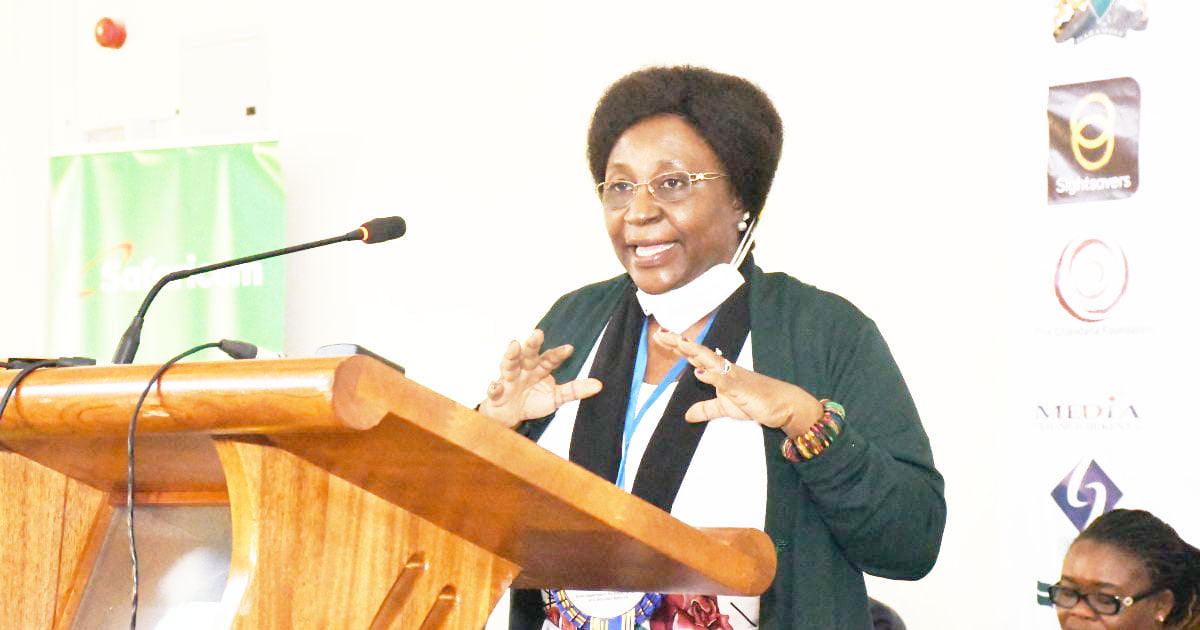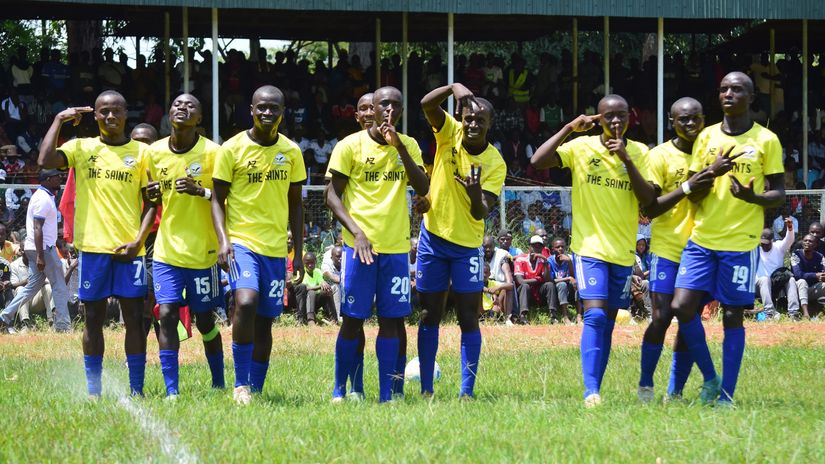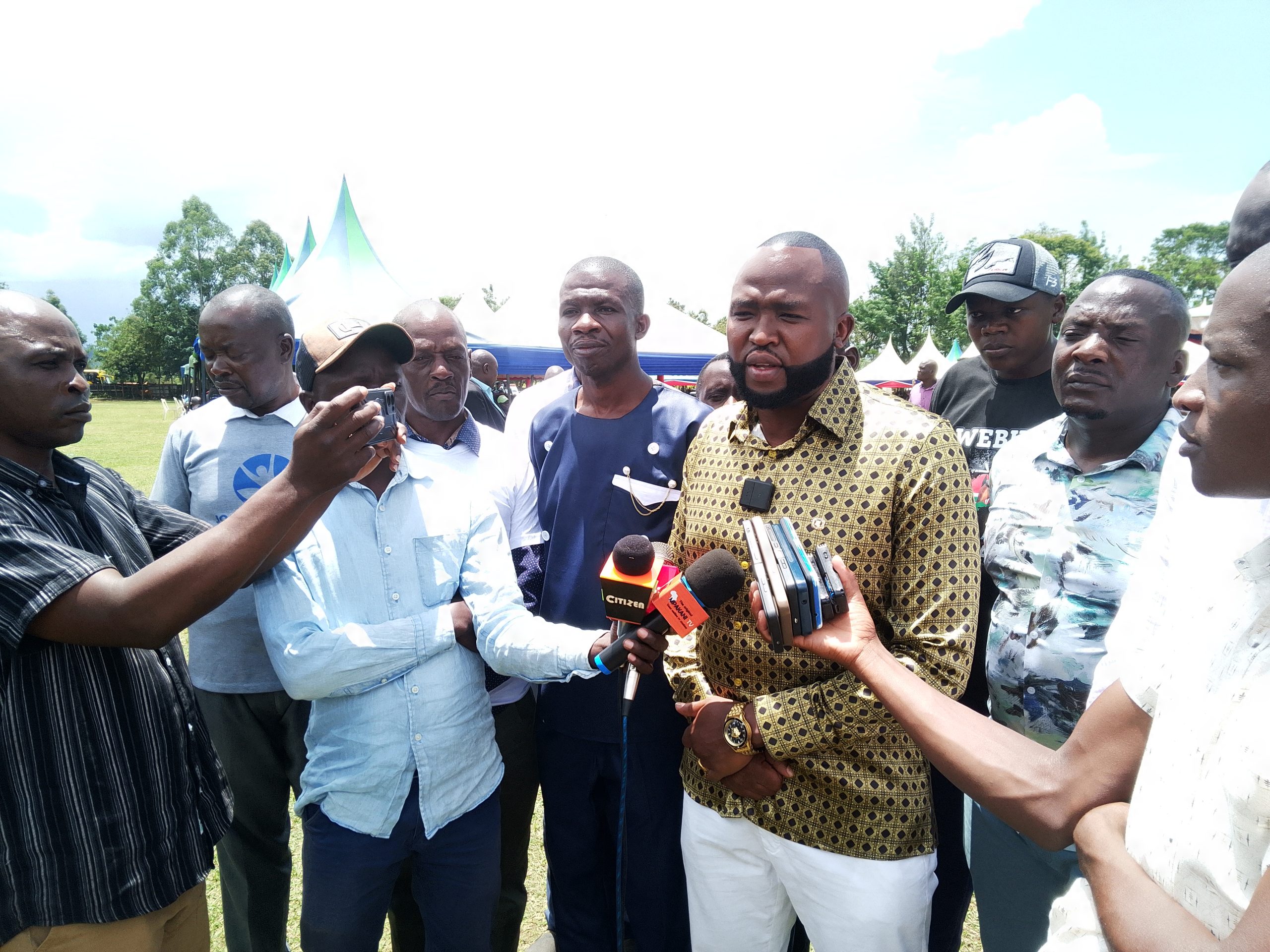By Roy Hezron
The government through the Ministry of Education is committed to the promotion of education for all children especially those with special needs and disabilities.
Speaking at Kenya Institute of Special Needs Education (KISE) on November 24, 2021 when officiating the opening of the 3rd KISE National Conference on Special Needs Education, the Principal Secretary (PS) State Department for Implementation of Curriculum Reforms Prof Fatuma Chege; who represented the Cabinet Secretary (CS) for Education Prof George Magoha, noted that the government is committed to ensuring that special needs children access education.
“This is demonstrated in the allocation of resources where each learner with special needs is allocated an additional capitation of Ksh.2,300 over and above what other learners are allocated. Similarly, at Secondary School level, a typical learner is provided with Ksh.22,244 per year while a learner with Special Needs or Disability is allocated Ksh.57,974 per year. This allocation is meant to ensure that no child is left behind,” noted Prof. Chege.
She further stated that the Ministry has put in place a policy on Special Needs and inclusive education and training, together with its implementation guidelines, which addresses education provision for learners and trainees with Special Needs and Disabilities.
The PS said that the policy documents address education provision for learners and trainees with special needs and disabilities, urging KISE Council to ensure the envisaged Special Needs Data Centre for the country is established.
“I am aware that there are challenges in regard to Special Needs and Disability data in this country. The Ministry of Education will support the establishment of a data centre to enhance availability of accurate and reliable data. This is critical for planning and resource allocation. It is in this regard that I urge the KISE Council to ensure the envisaged Special Needs Data Centre for the country is established,” she added.
Prof. Chege also congratulated the KISE Council and Management for keeping the Functional Educational Assessment Centre which is often used as a reference point by Educational Assessment and Resource Centres (EARCs) project on course and for their foresight in the development of Special Needs Education in this country.
“I wish to report that last month; the Institute conducted a three- day’s capacity building of 231 SCO-SNE on functional assessment. One of the deliverables of the training was a standard Special Needs data capture tool,” she said.
The Centre offers assessment and therapy services to children and its uniqueness is expected to revolutionize assessment of children with Special Needs and Disabilities and promote inclusive education practices.
The Centre is equipped by the Government of Kenya with modern equipment for assessment and rehabilitation of children with Special Needs and Disabilities, and serves as a referral facility for functional assessment in the country.
In his remarks, KISE Director, Dr. Norman Kiogora highlighted that the conference is crucial in refreshing functional assessment, teaching, advocacy and reinventing schools to be responsive to the new curriculum reforms’ mission of nurturing every learner’s potential in order to access quality education services and achieve success.
He said it will also contribute to the national agenda on education for all and disability rights in Kenya in realizing vision 2030 and achieving Sustainable Development Goals.
The two-day conference which started on November 24, 2021 and ended on November 25, 2021 brought together officials from the Ministry of Education and Teachers Service Commission (TSC), researchers, special education experts, teachers, students, parents, Non-governmental organisations (NGOs), policy makers and other stakeholders to deliberate on inclusive education under the theme Functional Assessment: Enhancing Access to Quality Services for Every Child and Youth.
The objective of the conference was to revitalize the practice of Functional Assessment (FA) while leveraging on technology, enhancing access to quality education services for every child and youth with special needs and disability in Kenya, and appreciating the need for functional assessment for purposes of transition in the education sector for learners and trainees with special needs and disabilities.
Other objectives included advocating and enhancing schools, Technical and Vocational Education Trainings (TVETs) and Universities to be responsive to the mission of Nurturing Every Leaner’s Potential to access quality, equitable and inclusive education services; advancing the process and practices of institutions of learning in ensuring services are mainstreamed; and advocating the role of EARCs in early identification and intervention for children and youth.






